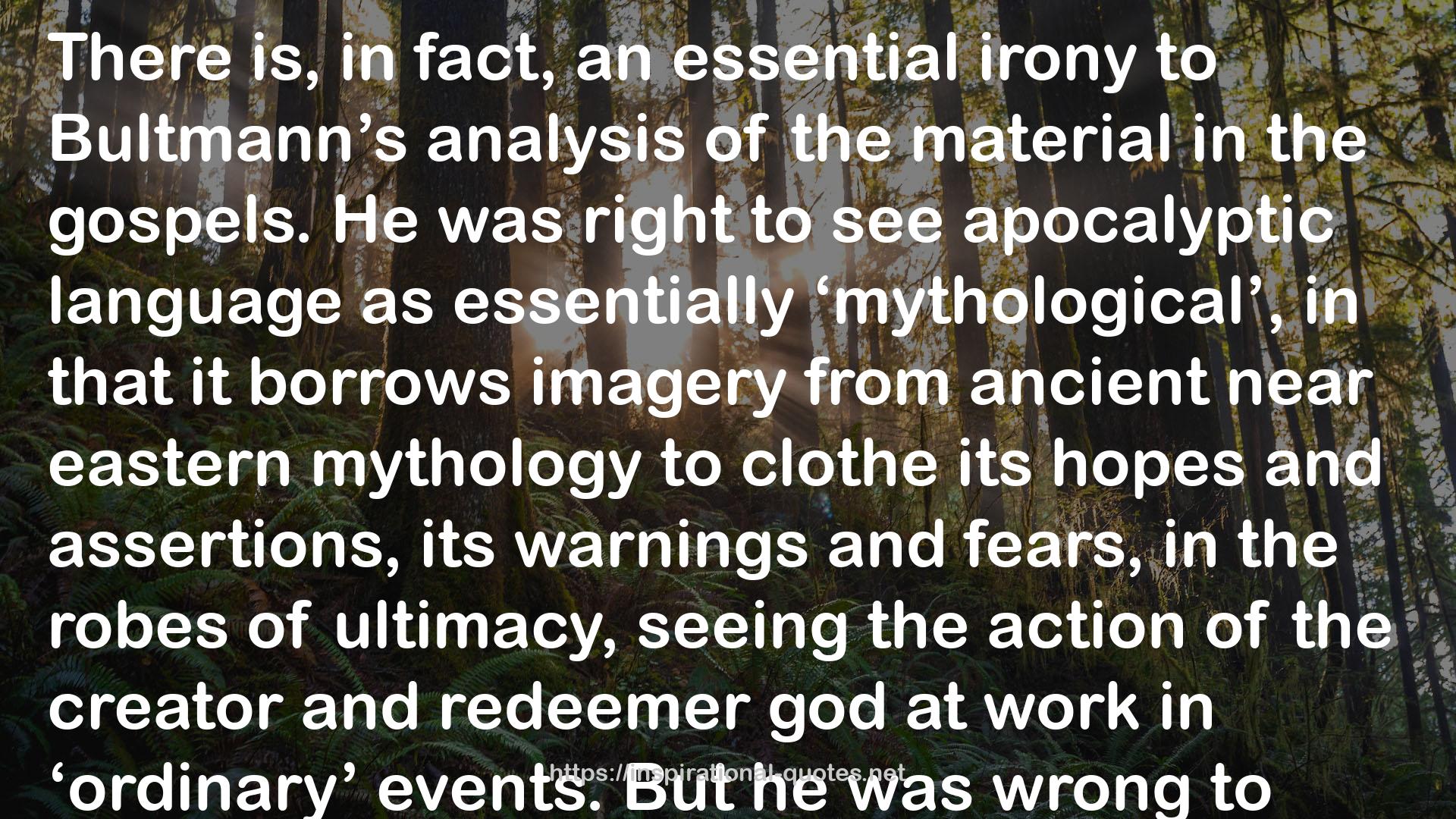" There is, in fact, an essential irony to Bultmann’s analysis of the material in the gospels. He was right to see apocalyptic language as essentially ‘mythological’, in that it borrows imagery from ancient near eastern mythology to clothe its hopes and assertions, its warnings and fears, in the robes of ultimacy, seeing the action of the creator and redeemer god at work in ‘ordinary’ events. But he was wrong to imagine that Jesus and his contemporaries took such language literally, as referring to the actual end of the space-time universe, and that it is only we who can see through it and discover its ‘real’ meaning. This is the mirror-image of the mistaken idea that the stories about Jesus, which are prima facie ‘about’ Jesus himself, were really, in the sense described above, ‘foundation myths’ and nothing more. Bultmann and his followers have read metaphorical language as literal and literal language as metaphorical. "
― N.T. Wright , The New Testament and the People of God (Christian Origins and the Question of God, #1)
